Behind PolyCE there are 20 expert organisations that are working together to significantly reduce the use of virgin plastics and enhance the use of recycled plastics in new electronics applications.
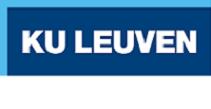
KU Leuven
The research groups of the department of mechanical engineering Life Cycle Engineering (Center of Industrial Management, logistics and Traffic ) and Sustainable Engineering (Technologiecampus Group T) of Prof. Joost Duflou and Prof. Wim Dewulf have been working in close cooperation on end-of-life aspects and on product lifecycle engineering since 2000. Furthermore, the research group has more than 15 years of experience with advanced LCA techniques and eco-efficiency quantification methods and has completed a range of research projects with industrial partners in this domain. The competences of the Life Cycle Engineering group is complemented with the infrastructure and expertise of KU Leuven technology campus Diepenbeek, that is focusing on polymer processing.
The main contribution of KU Leuven in the PolyCE project is defining minimum requirements to which the PCR should comply, to develop a standard procedure to test the quality of PCR, and to develop a standard grading system for PCR. In addition, KU Leuven will investigate the influence of product clustering on the sorting and reprocessing of PCR and work on demonstrators for the injection moulding of PCRs.

ONA Product SI
Ona is a design publisher, with a strong bond with the world of the architecture, the design, the art and the culture. And he is promotional of different cultural initiatives.
In addition to the design and the quality, we propose different, functional products, that they suggest emotion and sensitivity, looking for the complicity with the user.
The design of our products is coherent and integra perfectly with the contemporary architecture and is responded to different luminance necessities. Our design has been published in specialized publications and coverall by the recognition of architectures.
ONA is a partner of the Project, supports the development of guidelines for the desing of new applications with post-consumer recycled plastic (PCR) to develop of a lamp.

PHILIPS
Royal Philips (NYSE: PHG, AEX: PHIA) is a leading health technology company focused on improving people’s health and enabling better outcomes across the health continuum from healthy living and prevention, to diagnosis, treatment and home care. Philips’ goal is to improve the lives of 3 billion people a year by 2025. Philips leverages advanced technology and deep clinical and consumer insights to deliver integrated solutions. The company, headquartered in the Netherlands, is a leader in diagnostic imaging, image-guided therapy, patient monitoring and health informatics, as well as in consumer health and wellness and home care. Philips posted 2016 sales of EUR 24.5 billion and employs approximately 105,000 employees with sales and services in more than 100 countries.
Global resource constraints on health systems are driving a shift to value-based healthcare to reduce cost, increase access and improve outcomes. At the same time, aging populations across the globe and the rise of chronic conditions are driving a shift of care to lower-cost settings and the home. In parallel, more and more people are looking for new ways to proactively monitor and manage their health. And the digitalization of healthcare is shifting value from devices to software and services. These challenges can only be met through new, more integrated forms of care delivery across the health continuum, with a shift away from today’s focus on acute care and late-stage interventions.
In an increasingly connected world, the convergence of Philips’ consumer technologies that facilitate healthy living, medical technologies that help clinicians to deliver better diagnosis and treatment, and cloud-based technologies that enable data sharing and analysis, will be a key enabler of more effective, lower-cost integrated health solutions. This fits very well with Philips core strengths in professional healthcare and in consumer health and well-being.
In a total addressable market estimated at over EUR 140 billion, Philips is well positioned to leverage advanced technology and deep clinical and consumer insights to deliver integrated solutions that improve people’s health and enable better outcomes across the health continuum.
Going forward, Philips will further drive the benefits of scale in its current businesses while delivering additional growth from continuing investments in innovation. And establishing the Philips HealthSuite digital platform as a leading cloud solution to connect consumers, patients and providers will allow Philips to introduce value propositions with recurring revenue streams.
Innovation
Philips actively participates in ‘Open Innovation’ through relationships with academic and industrial partners, as well as via European and regional projects, in order to improve innovation efficiency and share the related financial exposure.
In 2016, Philips invested EUR 2.0 billion in Research and Development, or 8.2% of sales. Royal Philips’ total IP portfolio currently consists of 79,000 patent rights, 49,000 trademarks, 86,000 design rights and 4,400 domain names. Philips filed 1,690 patents in 2016, with a strong focus on the growth areas in health and well-being.
Philips contributes to the PolyCE in many different ways. The most important role is to show (operational) demonstrators of the new developed recycling grades. The full release of these materials in a product includes selection, molding, assembly and application validations is valid information which NPD teams can use for future Philips products. The second role is dissemination of past experience in order to guide the consortium into a direction which is technical feasible. The field of application of virgin plastics is complex and the shift to recycled content is even more complex. The Technical Expert Group in Drachten and The Sustainability Group in Amsterdam will lead this change and is responsible for selection, planning and execution of the different trials in the OEM supply base of Philips.
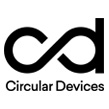
Circular Devices Oy
We envision a world of electronic devices “Designed to Last”. By efficiently combining human-centred design, circular economy thinking, and Ecodesign we increase hardware product sustainability while reducing risks and maximizing value for all the stakeholders starting with the end-users. Our reference cases, currently in the making, are the PuzzlePhone – the Pan-European modular smartphone industrial platform – and the backstage of our manufacturing 1-stop-shop, the PuzzleLab. Together with the Fraunhofer IZM we have been commissioned for advising and helping the German Environmental Agency (UBA) to develop a new breed of manufacturing setups, PuzzlePhone and our PuzzleLab concept at its core.
In cooperation with the consortium partners Circular Devices Oy will demonstrate, on large-scale, how to fully implement recycled plastics in smartphones from production to recovering, in a highly efficient closed-loop. The PuzzlePhone, and the PuzzlePhone Compatible licensable architecture – the Pan-European industrial modular platform for smartphone manufacturers – are conceived to trigger the transition from linear to circular business models.
They will provide to recycled plastics producers and recyclers a consolidated market push-pull, the missing link for a technically and financially viable go-to-market for any material or technology eager to tackle the smartphone market, which, given its excepcional size, it holds the biggest responsibility in terms of e-waste.
The project has time-span of 4 years, the first PuzzlePhone units with recycled plastic will not see the light until 2019 approximately. Meanwhile this projects (re)validates the unique window opportunity for a customizable and durable smartphone platform, Made in Europe and contributing to secure the citizen’s privacy and welfare.
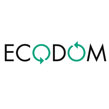
ECODOM
Ecodom is the largest Italian Household Appliance Recovery and Recycling Consortium. Founded in 2004, it is a private, not-for-profit Consortium that collects WEEE (Waste Electrical and Electronic Equipment) and treats it at specialist sites. Ecodom maximize the recovery of secondary raw materials and minimize environmental risk, benefiting member producers and the community.
Ecodom covers end-of-life and take back perspective and will act as a link between producers and recyclers. Ecodom is WP Leader and will be responsible for the performance of demonstrators focused on the improvement of the PCR plastic chain.
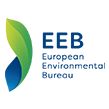
European Environmental Bureau [EEB)
The EEB is the largest federation of environmental citizens’ organisations in Europe. It currently consists of over 150 member organisations in more than 30 countries (virtually all EU Member States plus some accession and neighbouring countries), including a growing number of European networks, and representing some 15 million individual members and supporters. The EEB was established in 1974 to provide a focal point for its members to monitor and respond to the emerging EU environment policy. It acts as a communication channel between its members and the EU institutions – the Commission, the European Parliament and Council. It closely coordinates EU-oriented activities with its members at the national level, and also closely follows the EU enlargement process. The EEB is the environmental voice of European citizens, standing for environmental justice, sustainable development and participatory democracy. We want the EU to ensure all people a healthy environment and rich biodiversity.
The EEB’s main responsibility will be to help communicate the project as a waste prevention campaign focused on dematerialisation / alternative business and consumption models. We have budget to create effective digital communications tools and are targeting at least a million views. Effort is slated between months 13 – 24 as part of WP9. We will also monitor the different research and tasks and disseminate the project results at European and national levels through our extensive network of members and partner organisations.
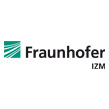
Fraunhofer Institute for Reliability and Microintegration (IZM)
The Fraunhofer IZM is a world-leading research institute for microelectronics and systems integration. The unique engineering profile is complemented by the activities of the Dept. Environmental and Reliability Engineering on “Green Electronics” right since the establishment of the institute in 1993. With more than 200 researchers, Fraunhofer IZM represents a unique combination of technology development and related environmental expertise.
Fraunhofer IZM acts as project coordinator and will provide expertise in eco-design and evaluation of the environmental performance of diverse electronic products. Furthermore, Fraunhofer IZM will support the development of guidelines on how to design new electronic products with post-consumer recycled (PCR) plastics coming from WEEE streams. Other core activities within PolyCE include the organisation of technical workshops consulting companies on life-cycle oriented environmental optimisation and how to use recycled plastics in new electronic products.
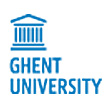
GHENT UNIVERSITY
UGent is a world-class academic institute (#62 in Shanghai ranking), with a strong polymer processing group in the Centre for Polymer and Material Technologies (CPMT) of the MATCH department. CPMT’s leading professors Ludwig Cardon and Kim Ragaert have yearlong experience in polymer processing, with their respective research lines in 3D printing and mechanical recycling of polymers.
Within PolyCE, UGent-CPMT will mainly apply Design for and from Recycling strategies for the development of the demonstrator cases and investigate the 3D printability of the PCR plastics.
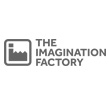
IMAGINATION FACTORY
The Imagination Factory is a product design engineering agency focused on turning great ideas into tangible products.
The team has over 25 years of experience working with hundreds of clients in a broad range of sectors.
Projects follow a recognised process to ensure the quality of the end result whilst maintaining a Human-Centred Design approach.
To guide & influence the development of new PCR suitable for incorporation into consumer electronic products. We will use the PuzzlePhone, designed for the circular economy, as a test bed for the project activity.
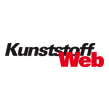
KunststoffWeb
KunststoffWeb GmbH has been operating online platforms (www.kunststoffweb.de,www.plasteurope.com) for the plastics industry since 1996 – with news, technical articles, industry directories as well as a large job market and a unique plastic raw material exchange.
Developing an online marketplace for PCR plastics.
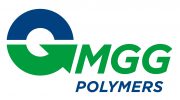
MGG Polymers
MGG Polymers has been in operation since the very start of the WEEE Directive implementation. Founded in 2004 as MBA Polymers Austria, the production started in 2006 and MBA Polymers was immediately recognized as Technology Pioneer 2006 by the World Economic Forum. The Austrian Joint Venture partner Müller-Guttenbrunn Group (MGG) took full ownership of the company in 2017 and renamed the company in MGG Polymers.
A quantity of well over 50 000 MT of WEEE plastics is undergoing a high-tech recycling operation resulting in REACH and RoHS compliant Post-Consumer Plastics that can be re-used in new electronic and other tech applications.
The plastics types produced by MGG Polymers are ABS, HIPS, PP and PC/ABS. Plastics with banned or restricted substances such Brominated Flame Retardants such as PBDEs or Cadmium compounds are separated, removed and destroyed for environmental protection.
The recycled REACH and RoHS compliant tech plastics represent a huge environmental benefit, as a specialized Life Cycle Analysis showed. Saving some 90 % of energy and over 4 MT of CO2 emissions per MT of recycled plastics compared to virgin material,
each employee of MGG Polymers saves in average the equivalent of 1000 MT of CO2emissions compared to virgin material. MGG Polymers therefore is a huge contributor for the Circular Economy.
As the plastics recycled by MGG Polymers are used for “green” electronic products for instance in vacuum cleaners, coffee machines and so forth, MGG Polymers has immediately applied to become a partner in this Poly-CE project, as this project is addressing one of the key problems of the Circular Economy, closing the missing link between the recycling industry and the designers and producers of EEE products.
As the plastics recycled by MGG Polymers are used for “green” electronic products for instance in vacuum cleaners, coffee machines and so forth, MGG Polymers has immediately applied to become a partner in this Poly-CE project. This project is addressing one of the key problems of the Circular Economy, closing the only missing link in the Circular Economy of WEEE plastics, namely the exchange of experience and knowledge between the WEEE plastic recycling industry and the designers and producers of EEE products.
The research cooperation with Poly-CE therefore forms an integral part of MGG Polymers strategy to extend the work with the production industry of new electronics. As participants of the Horizon 2020 project “Poly CE” MGG Polymers brings in the experience of 15 years of WEEE plastics recycling into this consortium and expects to better understand the needs and requirements of the major players in the production of Electric and Electronic Equipment in the hope and expectation that this work will help to increase the circularity of EEE plastics.
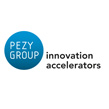
Pezy Group
Pezy Group is a hands-on product design and development agency that is at the forefront when it comes to knowledge about the application of bioplastics and recyclable materials. Their team accelerates innovation with a multidisciplinary practical approach in solving innovation challenges from first design to production release. Since 2009, Pezy Group has been certified as the first Cradle-to-cradle certified design consultancy in the world.
In the PolyCE programme, Pezy Group will work closely together with other participants to design different PCR plastics based demonstrators. In doing this, they will implement strategies such as Design for- and Design from Recycling. In addition, Pezy Group will develop strategies and guidelines for circular economy as from product design up-to end-users.
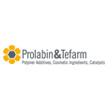
Prolabin & Tefarm
Prolabin & Tefarm is expert in the preparation of inorgano-organic layered compounds as hydrotalcites and zirconium phosphates/phosphonates, used as nanostructurant polymer additives, active ingredients for cosmetic, pharmaceutical/health care applications and heterogeneous catalysts; synthetized by eco-friendly procedures, therefore suitable for companies that seek innovative and green products.
Prolabin & Tefarm develops innovative additives as hydrotalcites and lamellar zirconium phosphate, able to improve mechanical and thermal properties of thermoplastic polymers to prevent the recycled material to degrade during the re-processing
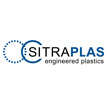
Sitraplas GmbH
SITRAPLAS has been successfully producing engineered compounds since 2005. We are located in the town of Bünde, Eastern-Westfalia, Germany. Our product range encompasses everything from resin coloring to formulating custom engineered resin compounds. The state of the art production and laboratory facilities allow us to fabricate custom applications for most major market segments.
SITRAPLAS will produce high-end compounds starting from previously recovered net plastics from WEEE via incorporation of the required additives and flame retardants. Additionally, SITRAPLAS will be involved in material characterization tests.

TECNALIA
TECNALIA RESEARCH & INNOVATION is a private, independent, non-profit applied research Centre of international excellence. Legally a Foundation, TECNALIA is the leading private and independent research and technology organization in Spain, employing 1,319 people (198 PhDs). TECNALIA is addressed by 7 business divisions, covering sectors of Construction, Energy, Industry, Transportation, Health and ICT.
Tecnalia will lead the WP5 “Create eco-innovative and sustainable polymer compounds for the electronics industry”, mainly focus on the development of novel and sustainable flame retardant systems for composite materials relevant for the E&E industry.

TU BERLIN
The Research Center “Research Center for Microperipheric Technologies” (TMP) of the Technische Universität Berlin (TUB) is one of the leading institutions in the field of electronic packaging worldwide, developing and implementing new technological concepts for the assembly of miniaturized, highly integrated electronic systems. The focus of the department Environmental and Reliability Engineering is on product design aspects of electronics, which allows taking into account environmental considerations, such as optimisation for end-of-life, for product development guidance (eco-design, life cycle assessments). TUB will bring to the consortium expertise on how to improve the material efficiency of WEEE recycling processes, on business models for circular economy and on establishing relationships between industrial sectors to enhance the implementation of circular economy using a comprehensive and transdisciplinary approach.
TUB will be leading work package 6, in which an online marketplace will be developed and launched. Other focuses of the research will be the characterisation of business models (work package 1) and the adaptation of end-of-life treatment (work package 3).
TUB will participate in the dissemination efforts. TUB is hosting in cooperation with Fraunhofer IZM the Electronics Goes Green 2000+, 2004+, 2008+, 2012+ and 2016+ conferences, which are attended by around 400 participants from the electronics manufacturing industry, the recycling industry, research, public authorities and NGOs. The Electronics Goes Green conferences are key events for networking and dissemination.
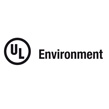
UL Environment
UL Environment empowers both manufacturers and purchasers to transform their sustainability efforts and environmental stewardship into true market leadership. We enable manufacturers to create better products and places and promote their companies and services in a more environmentally responsible way.
Since its inception as a safety science company more than 100 years ago, UL is taking on new safety challenges such as helping manufacturers overcome the complex challenges of supply chain transparency, risks associated with chemical exposure and more. Every day, UL enables purchasers to make smarter, healthier and environmentally-preferable decisions.
UL Environment provides a variety of services to help companies meet their sustainability goals, including multi-attribute sustainability certifications, including ECOLOGO Certification, GREENGUARD Certification to demonstrate that products are low-emitting, Environmental Claims Validations, Predictive Toxicology tools, testing and Advisory Services. For more information visitul.com/environment.
The primary focus for UL are standards, certification and testing. Currently standards can act as a barrier to the use of recycled content or promote its use depending on the standard. Traditionally fire and electrical safety are conservative when allowing for potentially uncontrolled materials like recycled content. Existing fire and electrical safety standards can act as a barrier to the use of recycled content. UL will be cataloging those barriers to the use of recycled content, promoting changes in existing standards where required and creating new standards when needed to encourage the use of recycled content plastics. Of special interest are standards for management of materials through the supply chain to assure quality and suitability for use in the final product. UL will also review material quality in the supply chain and how material quality impacts the fire and electrical safety of new materials or blends based on closed cycle recycled content.
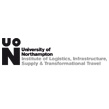
University of Northampton, Institute of Logistics, Infrastructure, Supply and Transportation (LIST)
The Institute of Logistics, Infrastructure, Supply and Transportation (LIST) at the University of Northampton is an education and research unit, employing expertise in the areas of:
The University of Northampton will lead on circular models of production and consumption for high resource efficiency. Expertise of the university will be used to determine reverse logistics methods and develop/apply metrics to assess them.

Whirlpool
Whirlpool Corp. is the number one major appliance manufacturer in the world. In the EMEA Region, Whirlpool produces and commercializes a wide array of products, with approximately 7€billion in annual sales, 26,000 employees and 14 manufacturing and technology research centers in 2016. Whirlpool is strongly committed in sustainability and invest in research and innovation.
Whirlpool will provide large producer perspective for circular models of production, opportunities for secondary market for PCR plastics, improvement of WEEE PCR plastics management. As end user of plastic components will test the possibility to use PCR plastics in large domestic
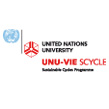
UNU-ViE SCYCLE
The mission of the UN Think Tank, the United Nations University (UNU), is to contribute, through research and capacity building, to efforts to resolve the pressing global problems that are the concern of the United Nations and its Member States. UNU’s Vice Rectorate in Europe hosted Sustainable Cycles (SCYCLE) Programme promotes sustainable societies. Its activities are focused on the development of sustainable production, consumption and disposal patterns for electrical and electronic equipment (EEE), as well as for other ubiquitous goods. SCYCLE leads the global e-waste discussion and advances sustainable e-waste management strategies based on life-cycle thinking.
Within PolyCE UNU is leading WP2 “Strategic Convergence and collaboration of all ac-tors across the Plastics value chain” and WP9 “Impact and scale up: consumer engagement, dissemination, exploitation and policy measures” given its expertise in coordinating net-work of stakeholders, leading policy work and interacting with policy-makers, private sector, governmental and non-governmental organizations, dissemination activities, including awareness raising campaigns.